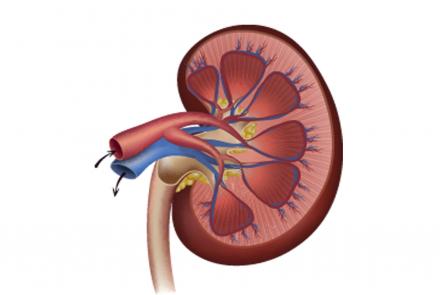
Diabetic diarrhoea commonly occurs in people with poorly controlled insulin-dependent diabetes and can pose several challenges related to bowel movement, including constipation and fecal incontinence. Dr Shital Raval gives an overview.
Diarrhea is a common and bothersome complication of diabetes. It is commonly seen in diabetic patients who have poorly controlled insulin-dependent diabetes and also a history of peripheral and autonomic neuropathy. The diarrhea comes and goes with periods of constipation or normal bowel movement. It can occur for several weeks to months and can accompany fecal incontinence.
Causes
The actual cause of diabetic diarrhea is not completely understood yet. The underlying causes for such diarrhea are suggested to be -
- Autonomic neuropathy - Autonomic neuropathy is damage of nerves which can disrupt nerve signalling of body functions such as sweating, bowel movement, heart rate etc.
- Bacterial overgrowth in the gastrointestinal system
- Exocrine pancreatic insufficiency (EPI) that results in the inability to digest food properly
- Medication - it can be a side-effect of prolonged metformin use or consumption of certain sugar-free sweeteners that contain sorbitol. Sorbitol has a laxative effect.
- Diseases - Chronic or frequent diarrhea can also be a sign of diseases such as Irritable Bowel Syndrome (IBS), Celiac disease, Crohn’s disease, etc.
Diagnosis
Diagnosis is hence based on clinical history, laboratory reports and elimination of all other probable causes.
Symptoms
Symptoms typically include –
- Frequent watery bowel movements
- Bloating
- Vomiting
- Loss of appetite
- Nausea
- Stomach cramps
Treatment
Treatment is largely focused on management of symptoms and addressing the dehydration by replacing lost fluids (via ORS) and keeping a check on the electrolyte balance. Additionally, treatment options include anti-diarrheal drugs, broad spectrum antibiotics, probiotics and clonidine. Recently, somatostatin analogues have also known to be helpful in controlling the diarrhea. For people with metformin-based diarrhea, metformin use may need to be discontinued henceforth.
Foods to avoid during diarrhoea:
- Dairy products such as milk or cheese.
- Fried and fatty foods.
- Gas inducing foods such as beans, cabbage, broccoli etc.
- Sugar and sugar substitutes.
- Alcohol, caffeine and carbonated drinks such as sodas.
How to prevent diarrhea in diabetic patients:
- Drink clean or filtered water. While travelling boiled or bottled water is a better option.
- Have plenty of water and fluids during warm weather.
- Stay indoors to avoid excessive sweating.
- Hand hygiene is essential. Always wash hands before and after preparing and eating food.
- Avoid raw or undercooked foods such as salads, uncooked meat or fish outside.
- Check your blood glucose frequently during summer days.
References:
Arch Intern Med. 1990 Feb;150(2):262-7. Diabetic diarrhea. Pathophysiology, diagnosis, and management. Ogbonnaya KI1, Arem R.
Postgrad Med. 1992 Jun;91(8):179-86. Diabetic diarrhea. An underdiagnosed complication? Beebe DK1, Walley E.
Curr Gastroenterol Rep. 2009 Oct;11(5):354-9. Diabetic diarrhea. Gould M1, Sellin JH.























